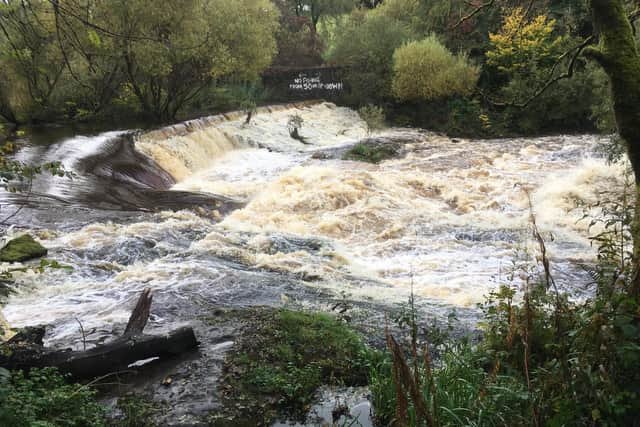Denny councillor voices concerns over pollution of River Carron
and live on Freeview channel 276
Councillor Paul Garner said several concerned people had been in touch with him and he would raise the matter with Scottish Water.
However, the utility company has said that a recent instance of a Combined Sewer Overflows (CSOs) was caused by a blockage and was promptly dealt with.
Advertisement
Hide AdAdvertisement
Hide AdA spokesperson for Scottish Water said this was often caused by people flushing wet wipes down toilets instead of disposing of them correctly.


Mr Garner, who represents Denny and Banknock, said: “There has been significant talk recently over water quality, and the discharge of sewage into bodies of water, particularly in England. Which is why I have serious concerns, like those who have contacted me, about the alleged pollution of the River Carron.
"I too have contacted Scottish Water requesting an onsite meeting. Water quality in Scotland is excellent, but we can do better and protect our river systems for generations to come.”
One of those with concerns is Brian Studholme, head bailiff for the River Carron, who said: “To our dismay we are experiencing regular discharges directly into the river of raw sewage and solids from Scottish Waters treatment plant in Denny. The area of discharge is into the main salmon spawning section of the river, if this is not stopped it will have a devastating effect on our future migratory fish stocks, as well as decimating our stocks of wild brown trout.
Advertisement
Hide AdAdvertisement
Hide Ad"For over 30 years a great number of volunteers have focussed on cleaning the River Carron of its post industrial debris and pollution, groups continue this improvement of wildlife habitat and viewing the river as a community focussed asset.


"There has been an amazing transformation of the river with abundant wild brown trout but more positively we are bucking the trend of declining salmon stocks as we are seeing an increase in the numbers of salmon returning to spawn each year. We get large numbers of visitors each autumn to Larbert weir to watch the leaping salmon this could be potentially under threat.”
Local resident Stan Antzack, winner of the Mcdonalds’ Community Champion for his work cleaning up the river, said: ““I raised this issue as far back as 2013 with Scottish Water and had assurances that this would be addressed and the Victorian sewer system and CSOs would be improved and here we are ten years later with no improvement.
“Reporting pollution incidents to SEPA is the way to collate instances but all Scottish Water seem to do is send a team out to clean up the area.”
Advertisement
Hide AdAdvertisement
Hide AdA Scottish Water spokesperson said: “There have been no untreated waste water discharges from Denny Waste Water Treatment Works.
"Following reports of sanitary products in the river, our teams investigated and identified a blocked sewer which led to the operation of a CSO near Winchester Avenue. The blockage was cleared and no further issues have been identified.
“The majority of blockages like this are caused by wet wipes and sanitary products, and customers are encouraged to bin these items rather than flushing them to avoid blockages from happening.”